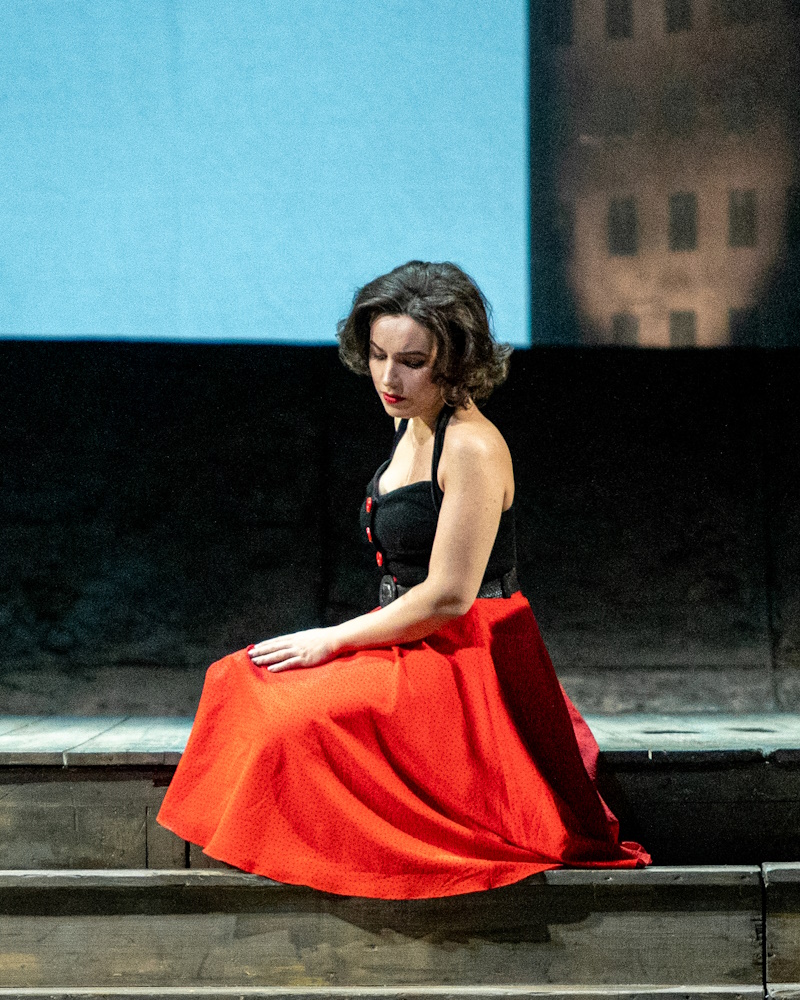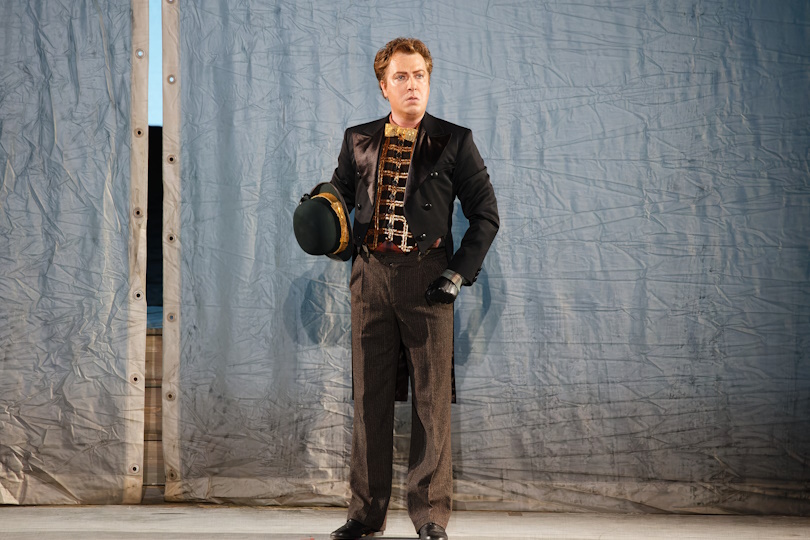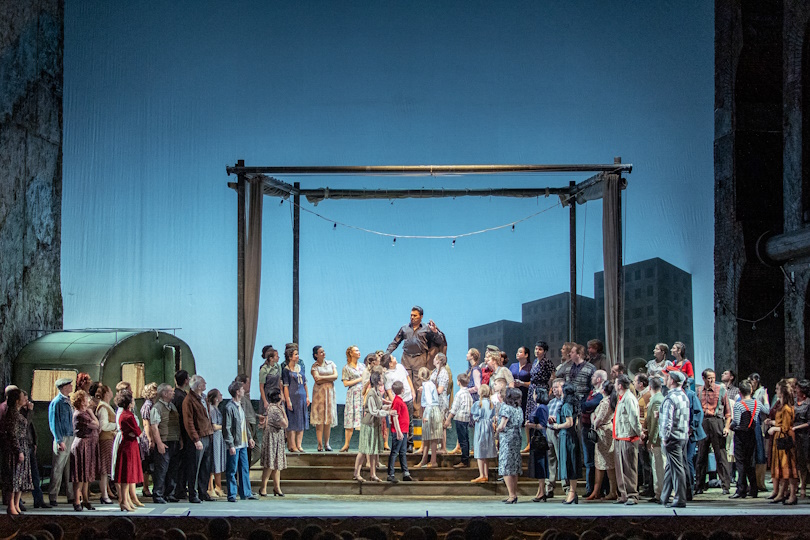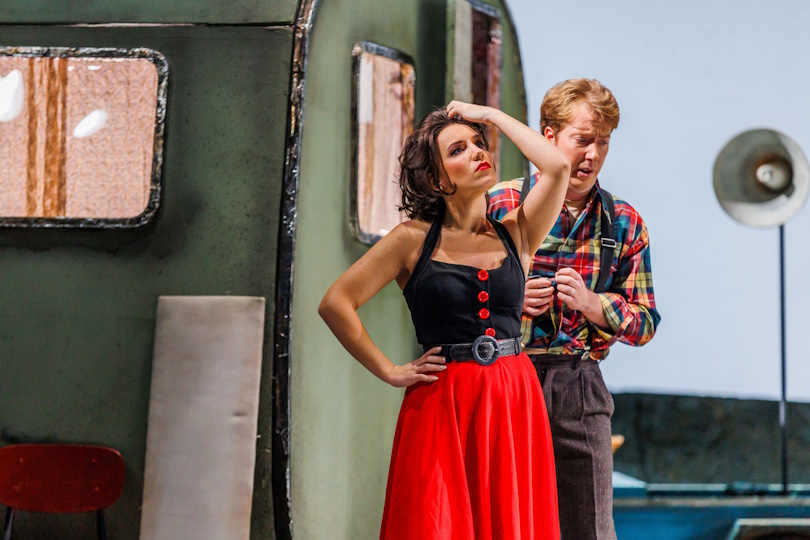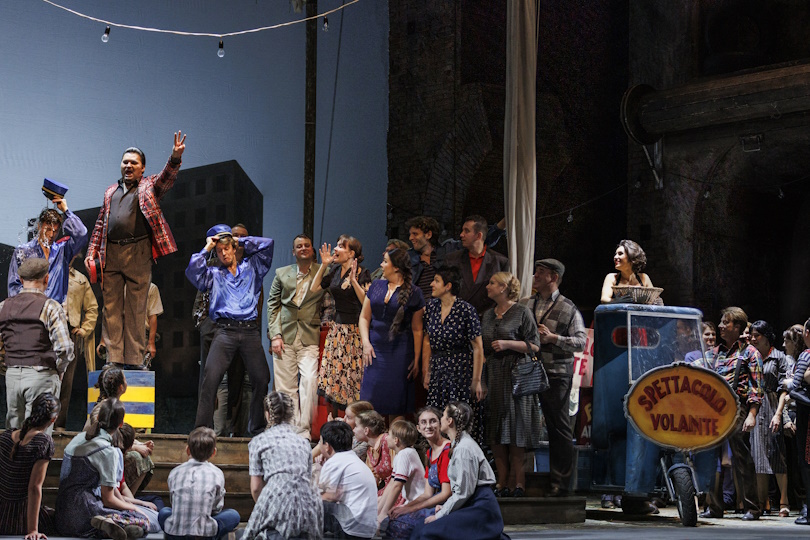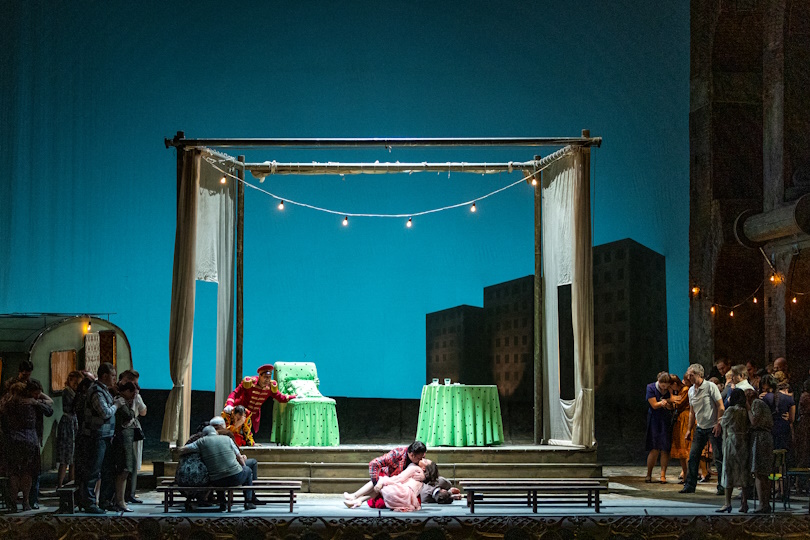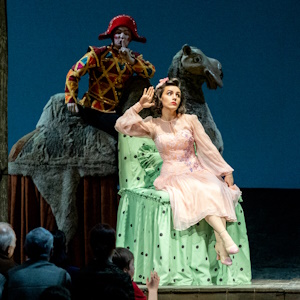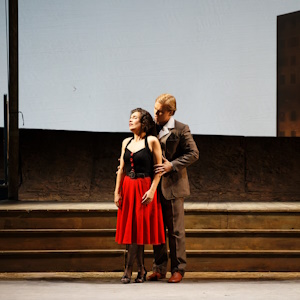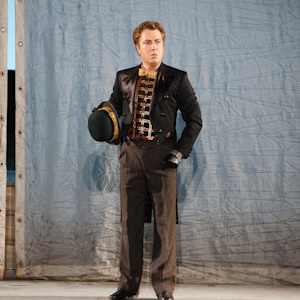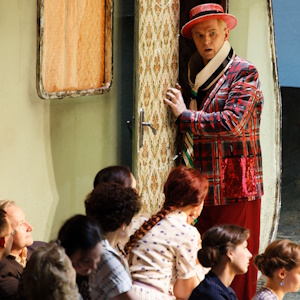Pagliacci
opera in two acts and a prologue
music by Ruggero Leoncavallo
 performed in Italian (with Russian surtitles)
performed in Italian (with Russian surtitles)
Pagliacci is staged by the renowned stage director Liliana Cavani, who has already staged Cavalleria rusticana at the Mikhailovsky Theatre. She cooperated with the brilliant team of Dante Ferretti and Gabriella Pescucci.
The secret of the world success of Pagliacci is a combination of simplicity of the plot and great music. The movable feast of the itinerant artists ends in a sad way: husband kills his wife and her lover. And the audience is not quite sure till the very end if the tragedy is only theatrical or not.
Prologue
Аn actor in a troupe of strolling players, comes in front of the curtain to tell the audience that the performance is about to begin. He hints at the story, saying that the play is about real people with everyday human feelings.
Act one
The village inhabitants enthusiastically welcome a company of actors, just arriving in the village square. Tonio goes to help Nedda down from the carriage but is pushed aside by her jealous husband Canio, who will not let anybody near her. The actors head towards the inn, and Nedda is left alone, disturbed by her husband’s words. She envies the freedom of the birds. Tonio approaches her, declaring his feelings, but Nedda strikes him across the face with a whip. He stumbles out, focussed on revenge. He then eavesdrops on a conversation between Nedda and her young lover Silvio, whom she finally agrees to elope with that very evening. Canio interrupts the conversation, having been alerted by Tonio, and Silvio escapes. Canio threatens Nedda with a knife, demanding to know the name of her lover. But it is almost time for the performance to begin, so Canio must hide his agitation and despair behind his mask.
Act two
People stream in to watch the performance, Silvio among them. The play begins: Colombina (Nedda) is waiting for her lover, Arlecchino (Beppe). Instead of Arlecchino, however, the foolish Taddeo (Tonio) enters and declares his love to Colombina, who rejects him. Arlecchino then arrives, but soon has to leave again because Pagliaccio, Colombina’s husband, returns unexpectedly. Pagliaccio hears his wife’s farewell to Arlecchino — the same words that Nedda herself spoke to Silvio before the play. Canio is transported to a real-life situation and becomes confused. His lines are no longer part of the play. He demands to know the name of her lover, but she refuses to tell him and he stabs her. When Silvio rushes onto the stage to help Nedda, Canio kills him too. He then addresses the audience with “La commedia è finita!” (“The comedy is over!”).
Premiere of the production: 27 November 2008
Libretto by Ruggero Leoncavallo
- Stage DirectorLiliana Cavani
- Stage DesignerDante Ferretti
- Costume DesignerGabriella Pescucci
- Musical Director of the productionDaniele Rustioni
- Lighting DesignerGianni Mantovanini
- ChoreographerМиша ван Хуке
- Principal PianistNatalia Dudik
- Chorus MastersAlexey Dmitriev, Sergey Tsyplenkov
- Associate Stage DirectorMarina Bianchi
- Assistant to Stage DesignerLeila Fteita
- Assistant to Costume DesignerMassimo Cantini Panini
- DirectorYulia Prokhorova
- Consultant in the Italian languageDaria Mitrofanova
Sets and costumes produced at the Vozrozhdenie Theatrical Design Studios

